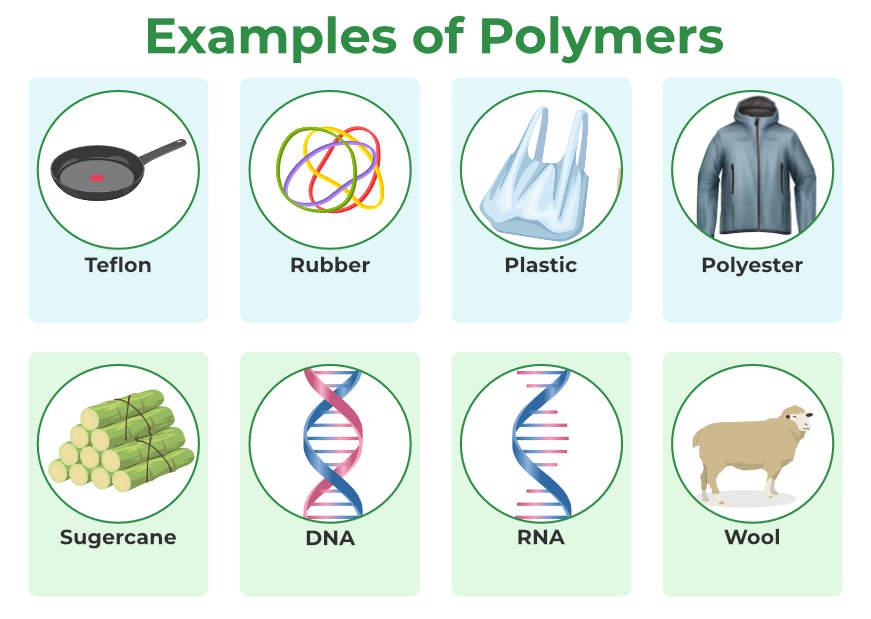Polymers in Building And Construction: Stronger, Lighter in weight, and A Lot More Long lasting
Polymers in Building And Construction: Stronger, Lighter in weight, and A Lot More Long lasting
Blog Article
Checking Out the Varied Applications and Advantages of Polymers in Different Industries
Polymers, with their varied range of residential or commercial properties and functionalities, have actually ended up being indispensable in different industries, each gaining special advantages from their application. From enhancing security and performance in the auto field to revolutionizing medical devices in the medical care market, polymers play a crucial role.
Automotive Field Applications
Polymers play a pivotal function in enhancing the performance and longevity of various components within the vehicle field. One prominent usage of polymers in the auto sector is in the production of lightweight components.

Health Care Sector Benefits
In various medical care applications, the benefits of using polymers are commonly acknowledged for their varied variety of advantageous residential properties. Polymers play an important duty in the healthcare sector as a result of their adaptability, biocompatibility, and cost-effectiveness. Among the main advantages of polymers in health care is their capability to be tailored to specific requirements, such as flexibility, resilience, and biodegradability, making them perfect for a large range of medical applications.
Polymer-based products are thoroughly utilized in medical devices, such as catheters, implants, prosthetics, and medicine distribution systems, because of their biocompatibility and capability to imitate natural cells. These materials can decrease the risk of allergies or beings rejected, improving client safety and outcomes. In addition, polymers are light-weight, making them suitable for wearable clinical tools and making sure individual comfort.
In addition, polymers allow the development of innovative therapy methods, such as hydrogels for cells engineering and nanocomposites for targeted medicine delivery. Their simplicity of processing and sanitation makes them important for keeping high requirements of hygiene in medical care setups. Overall, the varied benefits of polymers contribute considerably to innovations in clinical technology and individual treatment.
Environmental Benefits of Polymers

In addition, polymers can add to energy cost savings because of their light-weight nature. In sectors such as transport, light-weight polymer products can help in reducing fuel consumption and greenhouse gas emissions. Furthermore, polymers can enable the development of energy-efficient products such as insulation materials that enhance energy conservation in buildings.
Furthermore, polymers play a critical duty in reducing water pollution. For example, the use of polymer-based filtration systems can efficiently remove pollutants and contaminants from wastewater, protecting water resources and ecological communities. On the whole, the ecological advantages of polymers make them beneficial assets in promoting sustainability and environmentally friendly practices throughout numerous markets.
Polymers in Electronics and Modern Technology
Taking into consideration the boosting demand for innovative and lasting options in modern sectors, the combination of advanced polymer technologies in the world of electronics and modern technology has become a crucial method for driving efficiency and efficiency. Polymers have changed the electronic devices sector by enabling the manufacturing of lighter, much more versatile, and long lasting digital tools. From smartphones to clinical tools, polymers play an important role in enhancing item style and performance.
One considerable benefit of polymers in electronics is their shielding buildings, which help secure delicate electronic parts from environmental aspects and electric interference. Furthermore, polymers are essential in the advancement of adaptable display screens, wearable modern technology, and printed electronics, supplying endless opportunities for developing smart and interconnected gadgets.
Moreover, making use of polymers in electronic packaging has actually brought about developments in miniaturization and thermal administration, boosting the total performance and reliability of electronic systems. As modern technology proceeds to evolve, the adaptability and flexibility of polymers will certainly drive additionally technology in the electronics industry, shaping the future of innovation.
Function of Polymers in Building and Framework
The assimilation of innovative polymer products in construction and infrastructure projects has revolutionized the way structures are designed and constructed in modern times. Polymers provide many benefits visit in the building market because of their convenience, durability, and cost-effectiveness. One essential function of polymers in building is their usage in finishings and sealants, offering protection versus ecological aspects such as wetness, UV radiation, and corrosion. Additionally, polymers are made use of in the production of lightweight and high-strength composite materials, boosting the architectural integrity of buildings while lowering general weight.
Additionally, polymers play a crucial role in sustainable building and construction practices by making it possible for the growth of energy-efficient structures. Protecting products made from polymers help regulate indoor temperatures, minimizing the need for more home heating and cooling systems and inevitably lowering energy usage. The use of polymer-based compounds in infrastructure jobs such as bridges and roadways enhances their durability and lowers maintenance expenses. In general, the unification of polymers in construction and facilities displays their significant effect on modern-day engineering methods.
Verdict
In final thought, polymers play a crucial function in various markets such as automotive, health care, ecological, electronic devices, and construction. Their flexible properties make them valuable in creating innovative solutions and products. From boosting gas performance in lorries to boosting clinical tools, polymers use many benefits. Furthermore, their influence on reducing waste and check this promoting sustainability highlights their importance in modern-day applications. The prevalent usage of polymers demonstrates their significant contribution to progressing modern technology and enhancing lifestyle.
Report this page